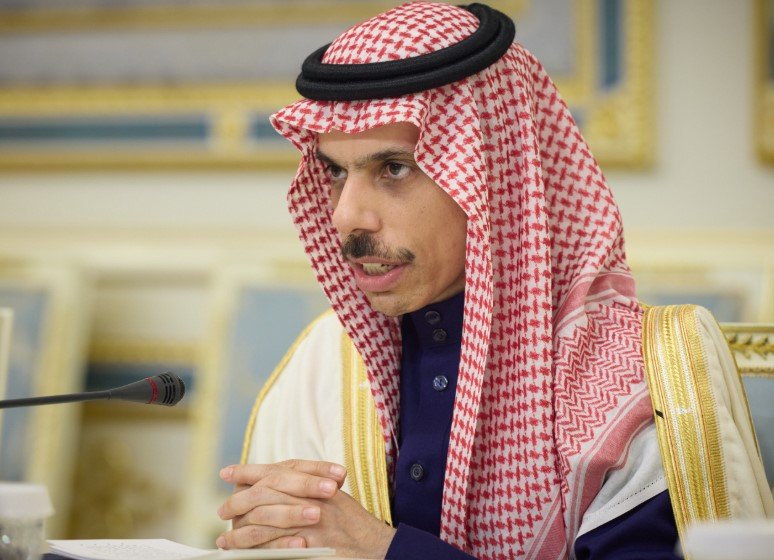Lavrov’s written message signals Moscow’s intent to strengthen relations amid shifting global alliances
Saudi Arabia has received a formal written message from Russian Foreign Minister Sergei Lavrov, reaffirming Moscow’s commitment to deepen cooperation with Riyadh at a time when both countries are recalibrating global partnerships and leveraging diplomatic influence.
The letter, addressed to Saudi Foreign Minister Prince Faisal bin Farhan, was delivered in person by Russian Ambassador Sergey Kozlov during his meeting with Saudi Vice Foreign Minister Eng. Waleed El-Khereiji in Riyadh on Sunday.
A Quiet But Calculated Message
It wasn’t a flashy announcement or a red-carpet affair. But it carried weight.
Lavrov’s note reportedly emphasized the “deep historical ties” between the two nations and expressed Russia’s willingness to expand collaboration across economic, political, and strategic domains. While the contents remain largely confidential, the timing and setting of the message are enough to raise eyebrows in diplomatic circles.
One official familiar with the meeting said the message “contained assurances from President Vladimir Putin’s administration” about continuity in bilateral engagement, particularly in energy coordination and regional security. That last part is key — especially considering the ongoing reshuffling of alliances across the Middle East and beyond.

Diplomatic Chess on Multiple Boards
The meeting came days after a flurry of diplomatic contacts between Saudi Arabia and other major players, including Iran and the United States. But Russia’s quiet outreach stood out — not just for what was said, but also for how it was delivered.
The in-person handover of Lavrov’s message is considered a deliberate move, reflecting the importance Moscow places on face-to-face diplomacy. It’s old-school, but also strategic.
Russia, isolated in much of Europe and increasingly dependent on Asian markets, has been steadily rebuilding ties with key Gulf nations. For Saudi Arabia, this is a balancing act — keeping U.S. relations intact while diversifying global friendships.
And here’s the thing: It’s not just about oil anymore.
More Than Just OPEC+ Talk
Yes, energy remains a pillar. But officials said Lavrov’s message went beyond crude prices and production quotas. It pointed to shared interests in security cooperation, investment opportunities, and cultural exchanges.
A Saudi diplomat briefed on the letter said there was “specific language around boosting joint projects, scientific cooperation, and university partnerships.” That’s a noticeable shift from past communication that was mostly limited to OPEC+ coordination.
This broader focus aligns with Saudi Arabia’s Vision 2030 push, which is all about economic diversification, tourism, education, and digital innovation. And Russia, despite its sanctions-strapped economy, still has niche expertise it wants to export — from nuclear technology to agricultural know-how.
• “We’ve seen more quiet Russian outreach to the Gulf recently, especially since the Ukraine war began affecting Moscow’s trade flows,” said one regional analyst who tracks Eurasian relations.
Meetings Behind Closed Doors
The Kozlov-El-Khereiji meeting was held at the Saudi Ministry of Foreign Affairs in Riyadh, away from media glare.
While no joint press conference followed, officials confirmed that both sides discussed ongoing regional developments. That likely included the war in Gaza, Saudi-Iran normalization, and the uncertain U.S. security umbrella in the Gulf.
For context, Saudi officials have been maintaining backchannel dialogues with multiple regional stakeholders, including Israeli and Iranian counterparts, as pressure mounts to broker longer-term ceasefires in Gaza.
Here’s a snapshot of what’s being quietly explored:
| Subject | Saudi-Russian Angle | Diplomatic Status |
|---|---|---|
| Energy Cooperation | OPEC+ alignment, price stability | Ongoing |
| Defense Ties | Surveillance tech, arms talks (unconfirmed) | Early stage |
| Ukraine Conflict | Saudi neutrality, humanitarian aid | Sensitive |
| Gaza Crisis | Support for ceasefire mediation | Shared interest |
| BRICS+ Alignment | Observership, currency swap talks | Under review |
A Saudi-Russia Reset, or Just Realpolitik?
There’s no denying that Russia and Saudi Arabia have had their share of awkward moments — most notably during the 2020 oil price war. But post-pandemic diplomacy, a shifting global order, and growing fatigue with Western dependency have made room for reconsideration.
And let’s be honest: both countries are playing long games.
Russia wants reliable economic partners outside the West. Saudi Arabia wants autonomy in its foreign policy and more seats at international tables. It’s transactional — and that’s not a dirty word in diplomacy.
Still, skeptics question whether this recent warmth can hold. With Russia heavily entangled in Ukraine and Saudi Arabia still deeply embedded in U.S. military cooperation, how far can they really go?
Short answer: farther than people might think.
Riyadh’s Diplomatic Calendar Stays Packed
In the span of one week, Riyadh has handled a whirlwind of foreign policy engagements:
-
A phone call between Saudi Defense Minister Prince Khalid bin Salman and Iran’s military chief
-
New signals from Qatar about pushing for a Hamas-Israel ceasefire
-
This latest message from Lavrov via Kozlov
It’s a crowded dance floor. And Saudi Arabia, for all its newfound swagger, is still making sure not to step on too many toes.
But here’s the kicker: they’re not following someone else’s rhythm anymore.
What’s Next? Everyone’s Guessing — Quietly
There’s no official timeline for a Saudi-Russian summit or major deal. But regional watchers are expecting follow-up visits before the end of the year.
Word is that Russian officials are angling for a visit by Prince Faisal to Moscow — perhaps in late autumn. In turn, a visit by Lavrov to Riyadh may be on the cards by early 2026.
One thing’s for sure though: Neither side is playing checkers. This is chess. And the moves, while subtle, are starting to show a pattern.
